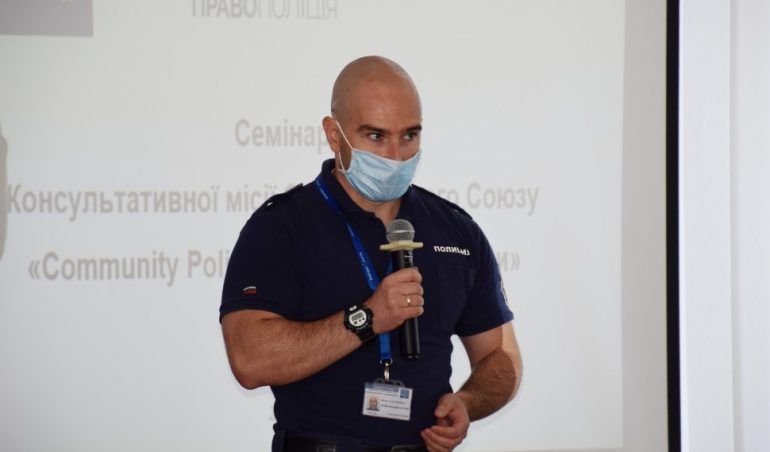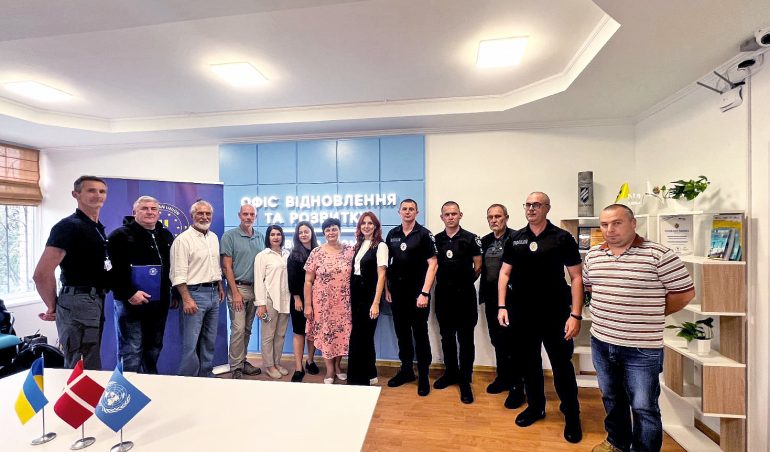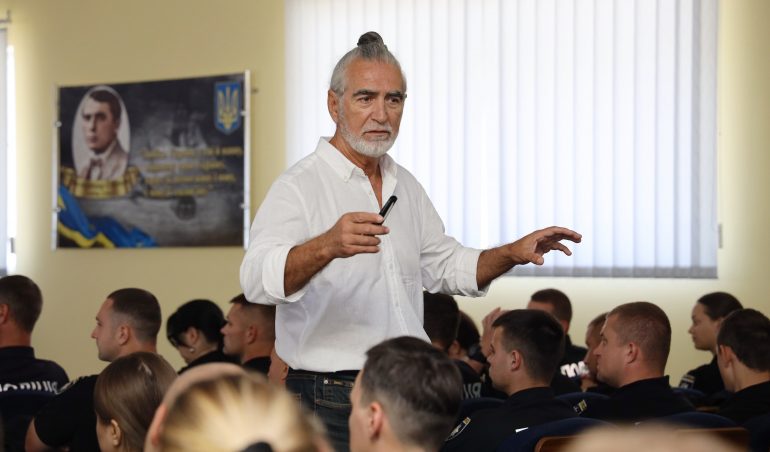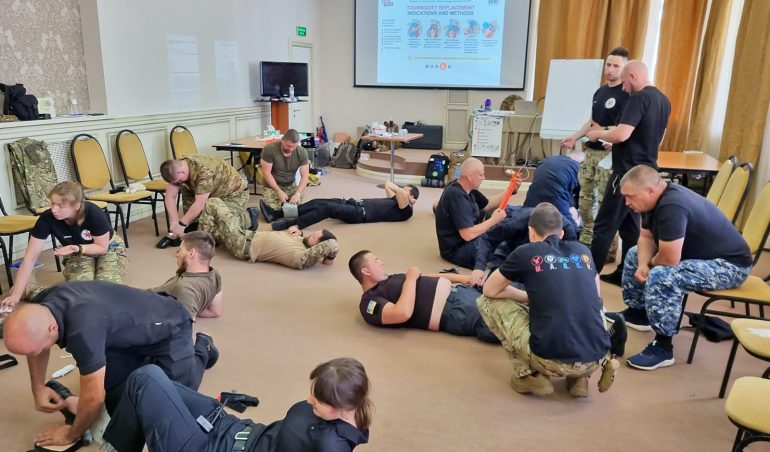Direct dialogue helps police services to connect with Roma communities
November 13, 2020
This week, 35 cadets and teachers from the Ministry of Internal Affairs Academy in Kharkiv took part in an online seminar on Roma minorities organised by the European Union Advisory Mission Ukraine (EUAM). How can police officers take into account the community specificities for the effective preservation of law and order? How can they establish a partnership with the local population to improve access to police services but also to better react in the event of a dispute? The Bulgarian police officer and EUAM Advisor/Trainer on Community Policing, Yuriy Mihalkov, shared his experience from his home town, Kyustendil, that includes an important Roma neighbourhood.
Aged 38, Yuriy is specialised in Roma communities but also in racial and ethnic issues in general. With the rest of the EUAM Community Policing Unit, his work in the Kharkiv region is to enhance cooperation between the police, local authorities and civil society. In his home country in Bulgaria, he has already witnessed the implementation of this community model to adapt the police service to Romani people living in his district.
“In many different countries including Ukraine, Roma and Travellers face discrimination and sometimes segregation, with difficulties to integrate into society,” he explained. “Often, police officers are confronted with the community when asked to implement evictions and executions of court orders. But the police should have established contact before this happens.”
His advice to the future police officers? That police officers go to meet Romani people where they live: establish contact with potential mediators (religious authorities or other informal leaders), and get to know better the different problems the community may be facing. “Most of the time, people are more interested in one-to-one dialogue rather than using the official chain of command. Once we have established the contact, we witness many problematic issues being solved at an early stage because personal relationships exist and communication is possible. For this, we need to adopt a proper attitude, improve access to our police services (indicating our closest station or our hotline) and remain educational when we explain the role and the mandate of the police.”
Once this connection is established with the community, it will become easier to assess the situation but also evaluate the health and education needs that should be taken into account before relocating any intervention. For this aspect, cooperation with local NGOs is essential. Yuriy also advised today’s future police officers to get to know Roma culture: “You would discover for instance that the 14th of January is New Year’s Day, when the community honours Saint Vasil the Great (Bango Vasil), protector of the Romani people. A day to let them celebrate and respect their traditions.”





